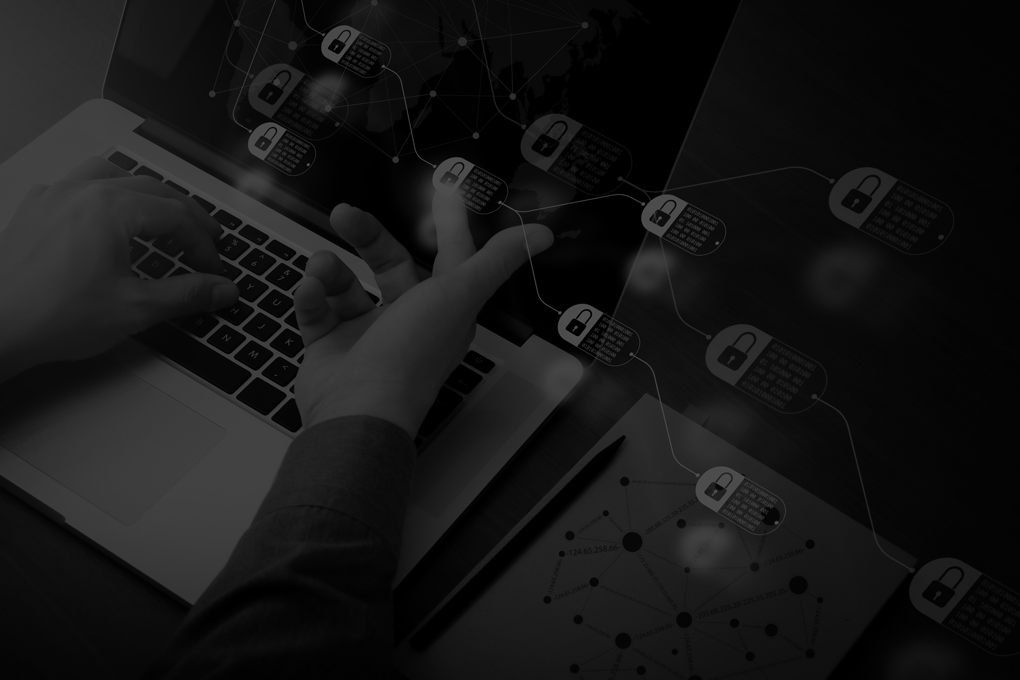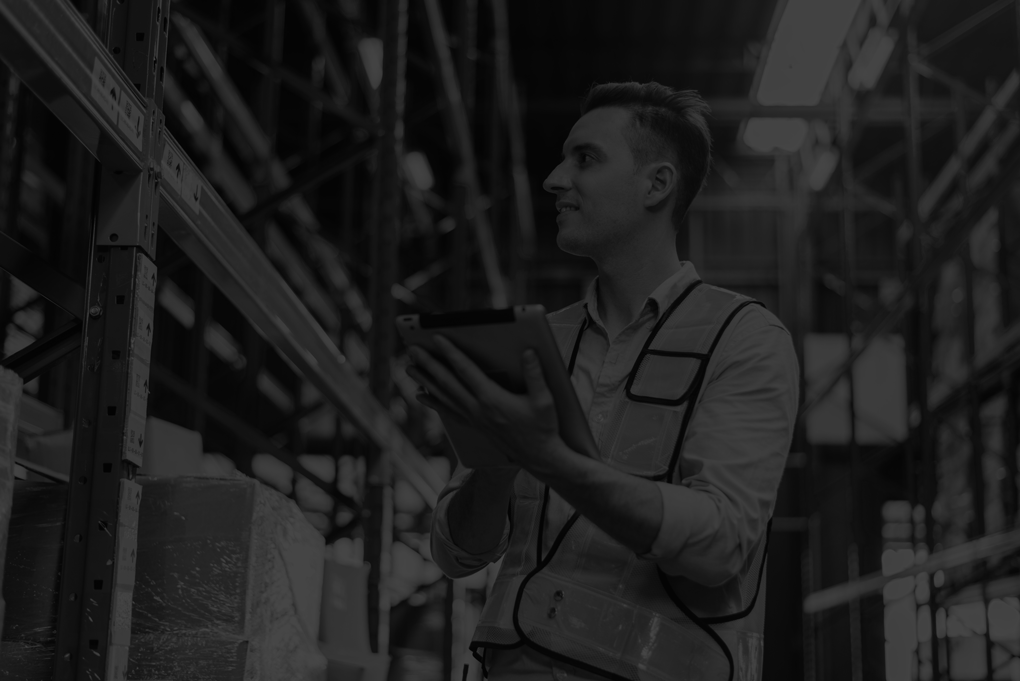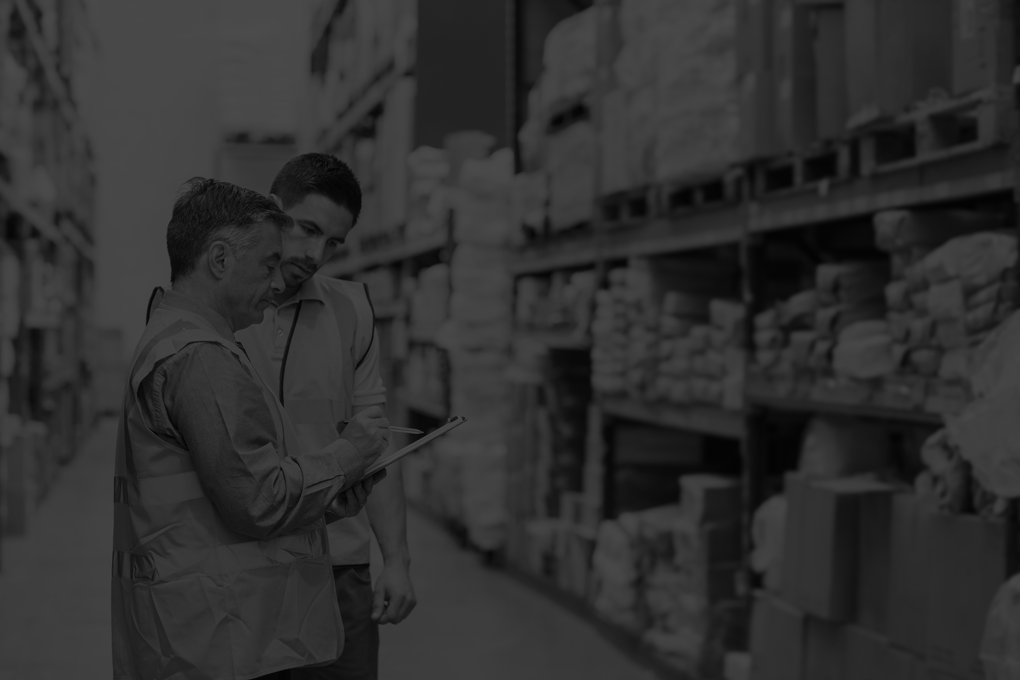Blockchain in the supply chain.

While mainly known for its association with cryptocurrencies, blockchain technology is gaining increasing attention as an application in modern supply chains thanks to its ability to provide secure, transparent and traceable data.
In fact, Gartner predicts that by 2030, blockchain technology will generate $3.1 trillion for businesses worldwide. But does blockchain represent the future of supply chain management? Here we explore the potential benefits and applications of blockchain in the supply chain.
What is blockchain?

A blockchain is a database that keeps track of information in a secure and decentralised way. Instead of having all the information stored in one place, as with a traditional database, the information is spread out across many different computers, which are all connected to each other.
When a new piece of information, such as a transaction or a new record, is added to the blockchain, it is verified by all the computers in the network. Once verified, the information is added to the existing blocks of information in the chain, forming a permanent and unalterable record. This distributed database is effectively a ledger that provides an enduring record of the data.
Because each block is linked to the one before it, forming the chain of blocks, there is a high level of security with the data in the blockchain. If someone tries to alter a block in the chain, all the subsequent blocks would also need to be changed, which is almost impossible due to the computing power needed to do so.
Because of the blockchain’s decentralised and secure nature, it is often used for things like cryptocurrency transactions and other types of financial transactions.
How can blockchain be used in the supply chain?

Blockchain can be used in the supply chain to create a secure and transparent record of every step in the process, from the origin and procurement of raw materials, through the manufacturing process, the transportation and storage of goods, to the final delivery to the customer.
By using blockchain, each party involved in the supply chain can create a permanent and tamper-proof record of their actions. Everyone has access to the same information, helping to reduce fraud and errors. Plus, the increased collaboration can reduce delays in distribution. All parties can see exactly where the goods are at any given time and can work together to prevent or mitigate problems for a more efficient and streamlined supply chain.
The supply chain blockchain can also be used to host and run smart contracts. These self-executing contracts have the terms of the agreement built in and automatically trigger actions based on certain conditions being reached.
For example, a smart contract could automatically pay a supplier invoice where it is verified that the shipment has been successfully made. Or it could track the movement of goods through the supply chain, sending notifications to everyone at prearranged checkpoints. Or it could trigger alerts for non-compliance with regulations or notify stock levels drop below a particular threshold, even automatically placing an order to replenish stock.
Smart contracts eliminate the need for manual processes and intermediaries, speeding up workflows and making them less costly and more efficient. They can also help to reduce fraud and errors since the code is self-executing and tamper-proof.
Using the blockchain can significantly enhance traceability in the supply chain. All supply chain partners can record and access relevant information about the goods. This might be price, quality, temperature or location data. Having this information available and unchangeable on the blockchain can ensure accurate traceability of the material supply chain. In turn this can reduce losses that might otherwise result from the sale of counterfeits. And it increases visibility and compliance in manufacturing, which can enhance a company’s reputation as a responsible manufacturer.
Jewellery retailer Monica Vinader employs blockchain technology to deliver greater supply chain transparency for its customers. Its product passports initiative enhances traceability for its consumers, allowing them to see who has input into the manufacture of the company’s products at each stage of the supply chain.
Distributors can use the blockchain to monitor and verify transactions. The database is a distributed ledger of transactions that is completely decentralised across a network of computers. Because of this, it cannot easily be manipulated, giving all participants confidence in the data’s accuracy and therefore in the authenticity of the products and the suppliers. Every time a raw material, component or finished product changes hands, the transaction is securely documented, providing an inalienable record of the provenance and movement of goods.
Additionally, all data is shared in real time, so everyone has access to the same ‘single source of truth’ with up-to-date information. The use of blockchain technology can provide accurate insight into stock availability or provide current figures for improved responsiveness or for informing more accurate forecasts.
The blockchain helps maintain the integrity of products like food and drink or pharmaceuticals that need to be stored and transported in temperature-controlled conditions. If temperatures or other atmospheric conditions are checked and logged on the blockchain, these cannot be changed, so if an anomaly occurs, there is no possibility of those responsible being able to amend data to cover up mistakes.
With a tamper-proof and distributed database of all transactions, movements, activities and other data, the blockchain improves security for all parties in the supply chain. It provides a trustworthy system for all those involved to access the same data and be held similarly accountable for their actions.
The blockchain uses cryptographic algorithms and consensus mechanisms to provide further security measures. By ensuring that data cannot be altered or deleted without the consensus of the entire blockchain network, it remains highly secure. This helps prevent fraud and malicious activity, resulting in a more secure supply chain.
Blockchain technology for the supply chain.

The global market for blockchain supply chain software is projected to grow to USD 3,272 million by 20206, a compound annual growth rate of 53.2% over 2020 figures. But if you are looking to implement blockchain technology into your supply chain activities now, what are the options.
A number of companies already offer blockchain applications, technology and platforms for the supply chain:
- IBM, for example, has offerings that allow companies to create a blockchain ecosystem. It also has a blockchain platform called IBM Food Trust, designed to improve the traceability and transparency of the food supply chain. It is also a founding member of Hyperledger Fabric, an open-source distributed ledger software framework and community, hosted by Linux.
- SAP has several blockchain-enabled products, components and APIs. It also offers Blockchain-as-a-Service, which allows customers to access blockchain services from companies like Hyperledger Fabric, Quorum and MultiChain.
- Oracle has a Blockchain Platform Cloud Service can be used to build and deploy Hyperledger Fabric blockchain applications and has an on-premise blockchain platform manager for enterprises. It’s Intelligent Track & Trace offering leverages blockchain technology for end-to-end supply chain visibility.
- VeChain is a blockchain platform designed to enhance supply chain management.
- ChainLink automates supply chain processes by connecting smart contracts to live external data sources, real-world events and payments.
- Amazon’s Managed Blockchain is a fully managed service for joining public networks or to create private networks using open-source frameworks including Hyperledger Fabric and Ethereum.
- DHL worked with Accenture to prototype blockchain serialisation for pharmaceuticals and offers blockchain-based invoicing as well as transparency and traceability through automation and smart contracts.
Is blockchain the future for the supply chain?

While blockchain is far from mainstream and is not readily accessible for most distributors, it does have the potential to revolutionise the supply chain.
As blockchain technology becomes more pervasive and more companies enter the market with their own solutions for supply chain management, we can expect more businesses to use it.
This will have an overall positive impact on commerce for the logistics industry. By increasing transparency and efficiency in the supply chain, it will help to reduce waste, improve sustainability and ensure ethical practices are followed in the supply chain. And through enhanced security and the reduction of fraud and errors, we can expect more secure and trustworthy transactions and partnerships.
For advice on the blockchain options available to your company, or how you can integrate the technology into your own supply chain operations, call Balloon on 020 8819 9071 or get in touch.